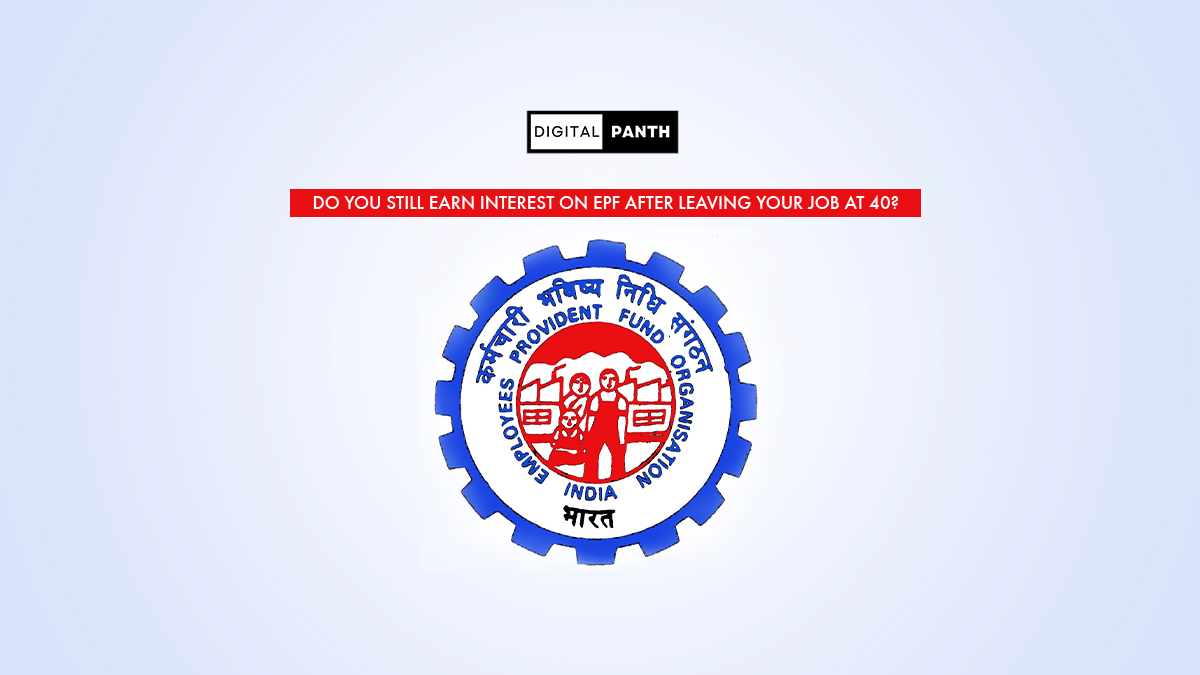If an individual leaves their job at the age of 40 and does not withdraw the amount from their EPF (Employees’ Provident Fund) account, the PF balance will continue to earn interest, but only for a limited period according to EPFO rules.
What Happens to PF After Leaving the Job?
When a person stops working and no longer contributes to their EPF account, the balance does not become inactive right away. EPFO allows the PF account to earn the notified interest rate (currently 8.25% for FY 2024-25) for a set period even after employment ceases.
Interest Accrual Period
- Interest is credited on the PF balance for up to 3 years after contributions stop (i.e., after quitting the job).
- After 3 years of no activity (no contributions or withdrawals), the account becomes dormant or “inoperative,” and no further interest is earned on the remaining balance.
- The principal amount stays safe in the account and can be withdrawn at any time, but it will not accrue additional interest.
Long-Term Scenario (Age Factor)
- If someone leaves the job at 40 and doesn’t touch the PF account, interest continues yearly for the next 3 years.
- After those 3 years, with continued inactivity, the interest stops, but the balance remains accessible.
- The rules are slightly different for superannuation or retirement-age employees—interest continues for up to 3 years post-retirement as well.
- There are rare scenarios where the interest continues till the age of 58, but only if the case is not treated as “inoperative”; typically, for ordinary job-leaving cases, 3 years is the practical window.
Tax Implications on Interest
- Any interest credited on an EPF account after cessation of employment (i.e., during the period with no contributions) is taxable, even if the account had more than 5 years of contributions earlier.
- The interest must be declared in the income tax return under ‘Income from Other Sources’ and taxed at the applicable slab rate.
What Should Account Holders Do?
- Track the 3-year period after leaving a job for the best financial outcome.
- Either transfer the PF balance to a new employer (in case of job change) or withdraw it within 3 years to maximize interest income.
- If left untouched and interest stops, the account’s principal is still safe but inactive accounts may eventually be transferred to government welfare funds if left for decades.
Conclusion
In summary, if a person leaves employment at 40 and does not withdraw their PF, the account will keep earning interest for up to 3 years; after that, interest stops, but the money remains safe and accessible for withdrawal.
Also Read: How to withdraw pension contribution in EPF?
How to Change a Bank Account in EPFO?
Frequently Asked Questions
Yes, 100% withdrawal can be made after 2 months of unemployment or after retirement.
The rate is notified annually by the government. For 2024-25, it’s 8.25%.
Unclaimed funds after years may be transferred to the Senior Citizens’ Welfare Fund and eventually absorbed by the government if left unclaimed for 25 years.
Transfer the PF account to the new employer to continue interest accrual and keep the account active.
Disclaimer: This article is for informational purposes only and is based on current EPFO rules and publicly available data. Interest accrual, tax implications, and withdrawal rules may change, so readers should verify details with the EPFO or a certified financial advisor before taking any action regarding their EPF account.
